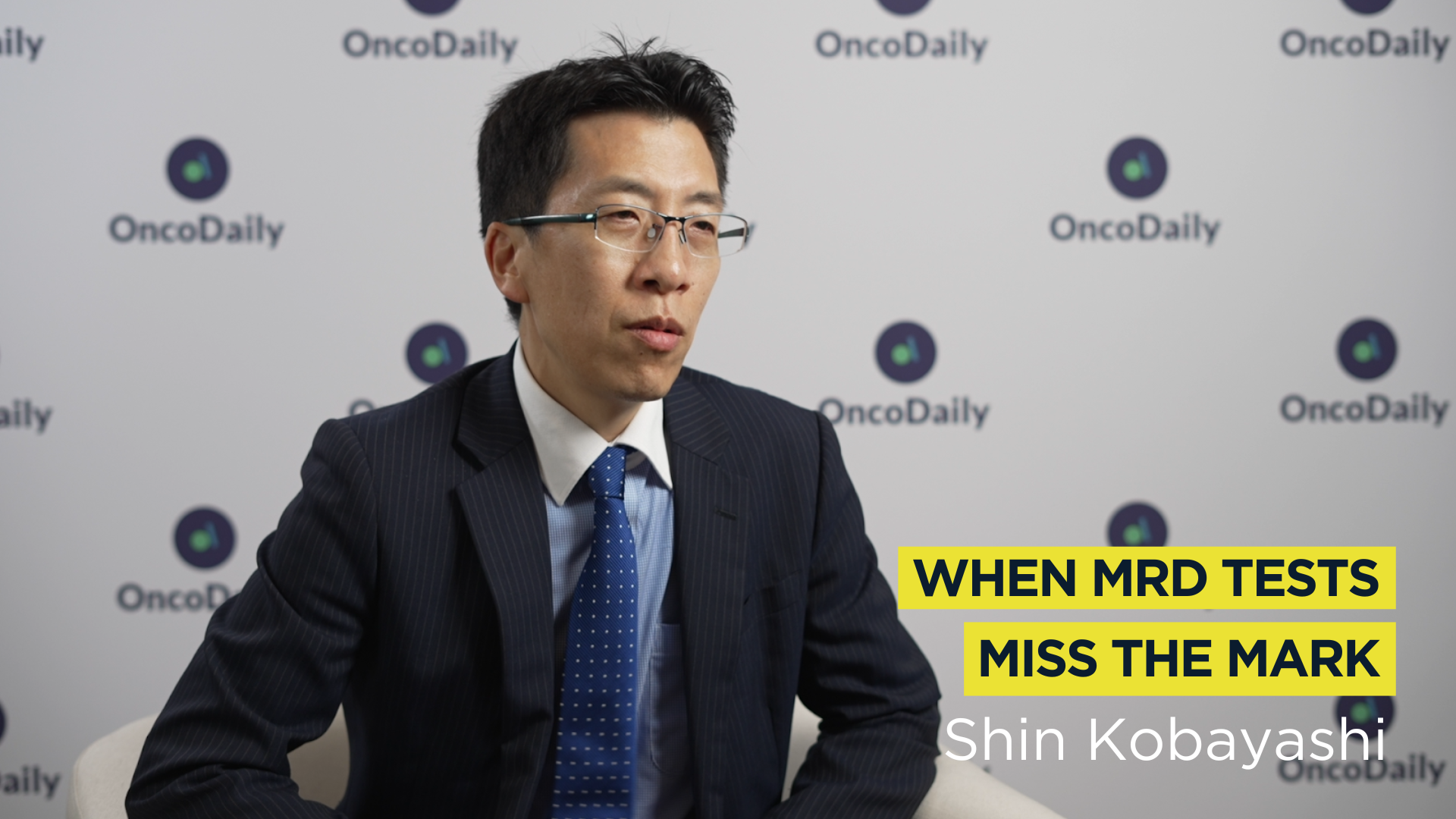The American Society of Clinical Oncology (ASCO) Annual Meeting is one of the largest and most prestigious conferences in the field of oncology. This year, the meeting took place from May 31 to June 4 in Chicago, Illinois. The event gathers oncologists, researchers, and healthcare professionals from around the world to discuss the latest advancements in cancer research, treatment, and patient care. Keynote sessions, research presentations, and panel discussions are typically part of the agenda, providing attendees with valuable insights into emerging trends and innovations in oncology.
This year, OncoDaily was at ASCO 2024 for the first time covering the meeting on-site. We had the pleasure of interviewing researchers who summarized the highlights of their work.
In this video, Shin Kobayashi, MD Hepatobiliary-pancreatic surgeon at National Cancer Center Hospital East, Japan, shares his poster session on ‘Characteristics of patients (pts) with disease relapse despite absence of molecular residual disease (MRD) after resection of colorectal oligometastases (CRM): Implications from PRECISION study.’
My name is Shin Kobayashi. I’m a hepatobiliary and pancreatic surgeon from Japan. And this time, I’m presenting about precision.
I’m doing research about personalized perioperative chemotherapy for colorectal oligometastasis using MRD, which is a molecular residual disease. Although MRD-guided adjuvant chemotherapy is warranted, some patients do recur despite MRD negativity post-operatively. So in my study, which is called Precision Study, which includes 110 patients, we included resectable colorectal oligometastatic patients.
And we analyzed MRD post-operatively. And about 20% of MRD-negative patients do recur. Characteristics of those patients are lymph node metastatic patients and also poor genomic profile patients, which included BRAF V600E mutations or RAS mutation, SMAD4, or PIK3CA.
Those risk factors are associated with relapse with MRD negativity. So I think those factors should be considered for personalized perioperative treatment. In my opinion, there are two possibilities.
Like MRD assays should be more precise to include those relapsed patients. And one more thing is that genomic profile is very important for resectable disease when they’re metastatic. I mean, resectable stage 4 disease, they should be considered for genomic profile.
So in conclusion, some patients do recur despite MRD negativity. And my study, precision study, is still ongoing. And maybe next year, the final result will be coming.
Thank you.
More videos and content from ASCO 2024 on OncoDaily.
